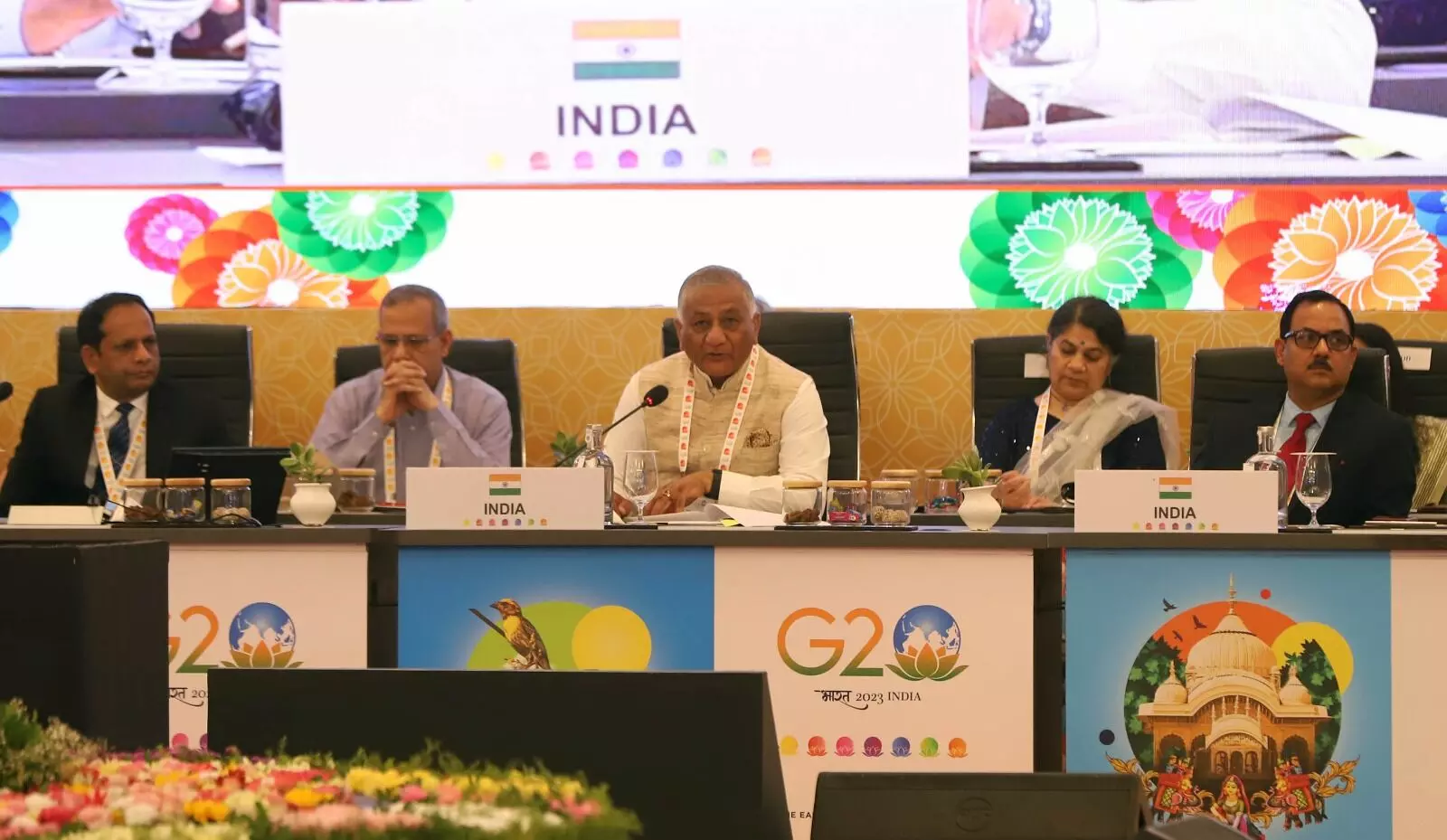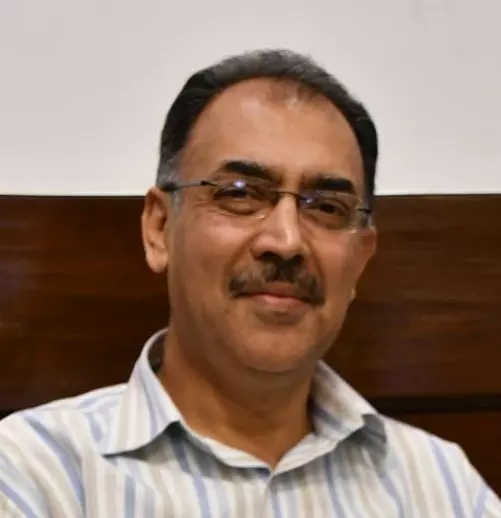Nutrition at the core
India’s G20 Presidency offers a golden opportunity to boost nutrition-sensitive policies in agriculture towards ensuring access to nutritional security for the poor

The meeting of Agriculture Chief Scientists under India’s G20 Presidency was recently held in Varanasi. One of its mandates, among others, was to build consensus on the need for national policies that support a nutrition-sensitive agri-food system transformation. Furthermore, the latter empowers small and marginal farmers to adopt climate-resilient production measures, hence promoting healthy communities.
In this context, the MS Swaminathan Research Foundation’s (MSSF’s) ‘Annadatta Nutritional Garden Model’ in the tribal-dominated Koraput District of Odisha is a useful example. Once covered with dense forests, this mineral-rich district has been facing rapid deforestation and the consequent wrath of climate change, deeply impacting the tribal farmers’ integrated farming methods.
The MSSF Model aims to increase the capacity of women farmers in the district through self-help groups (SHGs) to cultivate fruits and vegetables in their backyards. This is a structured garden with multiple crops to enhance the food and nutritional security of the family. The Annadatta Model’s sustained interventions, especially through participatory communication, have led to a positive change in the families’ consumption patterns. The daily diet has now been balanced in terms of vegetables, fruits, and, in addition, pulses that are rich in a wide range of nutrients, including minerals and vitamins. More significantly, this approach has taken care of the nutritional security of the families for the entire year.
The report of the Committee on Doubling Farmers’ Income (DFI), 2017 observes that the urban and rural populations in India still face nutrition-linked health concerns (e.g., due to a non-balanced diet). This is despite the fact that the country produces large quantities of nutritious foods such as cereals, pulses, fruits, vegetables, milk, meat, fish and eggs. The plate, it adds, impacts the demand of inputs at farms. The report, therefore, recommends that interventions at the last mile should be designed to recover demand for crops that create value not only for farmers’ return but also for families’ access to nutrition, health and well-being.
For instance, experts contend that millets (jowar, ragi, bajra etc.) are three to five times more nutritious than wheat and rice in terms of proteins, minerals and vitamins. They need very little water for production (requiring just around 25 per cent of the rainfall regime demanded by crops such as sugarcane and banana). More importantly, they can be grown in vast dryland areas using farmyard manures, hence reducing the dependence on synthetic fertilisers. Thus, expansion of a robust millet cropping system and its promotion in the country (as is being done, for instance, through the International Year of Millet 2023) can provide multiple securities, keeping in mind the impact of climate change.
Experts further state that a key factor that hampers access to nutritious food in a family is its inequitable allocation for women and young children. Rural women, especially as farmers, have a critical role to play in sowing, weeding and harvesting of agricultural crops. Women’s empowerment, therefore, can have a direct impact on agricultural productivity as well as making nutrition ‘inclusive’ at home.
Hence, there has been governments’ push for investments, such as in the setting up of Agri Infrastructure Fund (AIF) that fosters funding, among other things, for women farmer collectives like self-help groups and related community assets. The promotion of 10,000 Farmer Producer Organisation (FPO) programmes, in addition, aims at their effective participation as member shareholders in these entities. The National Food Security Mission (NFSM) enables field demonstrations on bio-fortified crops such as iron-rich bajra, protein-rich maize and zinc-rich wheat. Thrust is being given to women fishers under the Prime Minister’s Matsya Sampada Yojana.
In fact, agricultural extension also has a critical role to play here. Non-profit communication organisations such as ‘Digital Green’ have been supplementing the efforts of the National Rural Livelihood Mission (NRLM) and Indian Council of Agricultural Research (ICAR) at the last mile by developing and promoting nutrition-sensitive agriculture curricula through community-led videos. Typically, these participatory videos empower women farmers on themes such as seasonal changes that affect nutrition, and demonstrate the ways to address the same through climate-resilient farm practices.
The G20 Bali Declaration of 2022 led the Food and Agriculture Organisation (FAO) and the World Bank to publish a mapping report in April 2023 to identify major gaps in global responses to rising nutritional and food insecurity. The report highlights the fact that rising hunger, globally, has reverberations on other dimensions of malnutrition, including micronutrient deficiency, and impacts people's ability to engage productively in the broader economy. According to the report, a critical tool to fulfil these gaps is the Global Food and Nutrition Security Dashboard, a public information and resource-sharing platform hosted by the World Bank. The dashboard has 40 partners (bilateral, multilateral, regional organisations, governments, civil society, etc.) and also facilitates and disseminates new knowledge to enable the development of sound national policies.
The need of the hour is to further refine the outreach of the above global initiative in developing countries. This can be done by plugging in, monitoring, and updating the nutrition-centric work being done by entities such as the Swaminathan Research Foundation and Digital Green, as well as climate-resilient best practices of last-mile rural governance institutions such as Krishi Vikas Kendra’s (KVKs) and Gram Panchayats.
Leveraging national policies that promote such practices in the G20 deliberations will strengthen efforts towards agri-food transformation to make nutritional security more accessible to the poorest.
The writer is Officer on Special Duty, Fisheries in the Ministry of Animal Husbandry, Fisheries & Dairying, Government of India. Views expressed are personal



